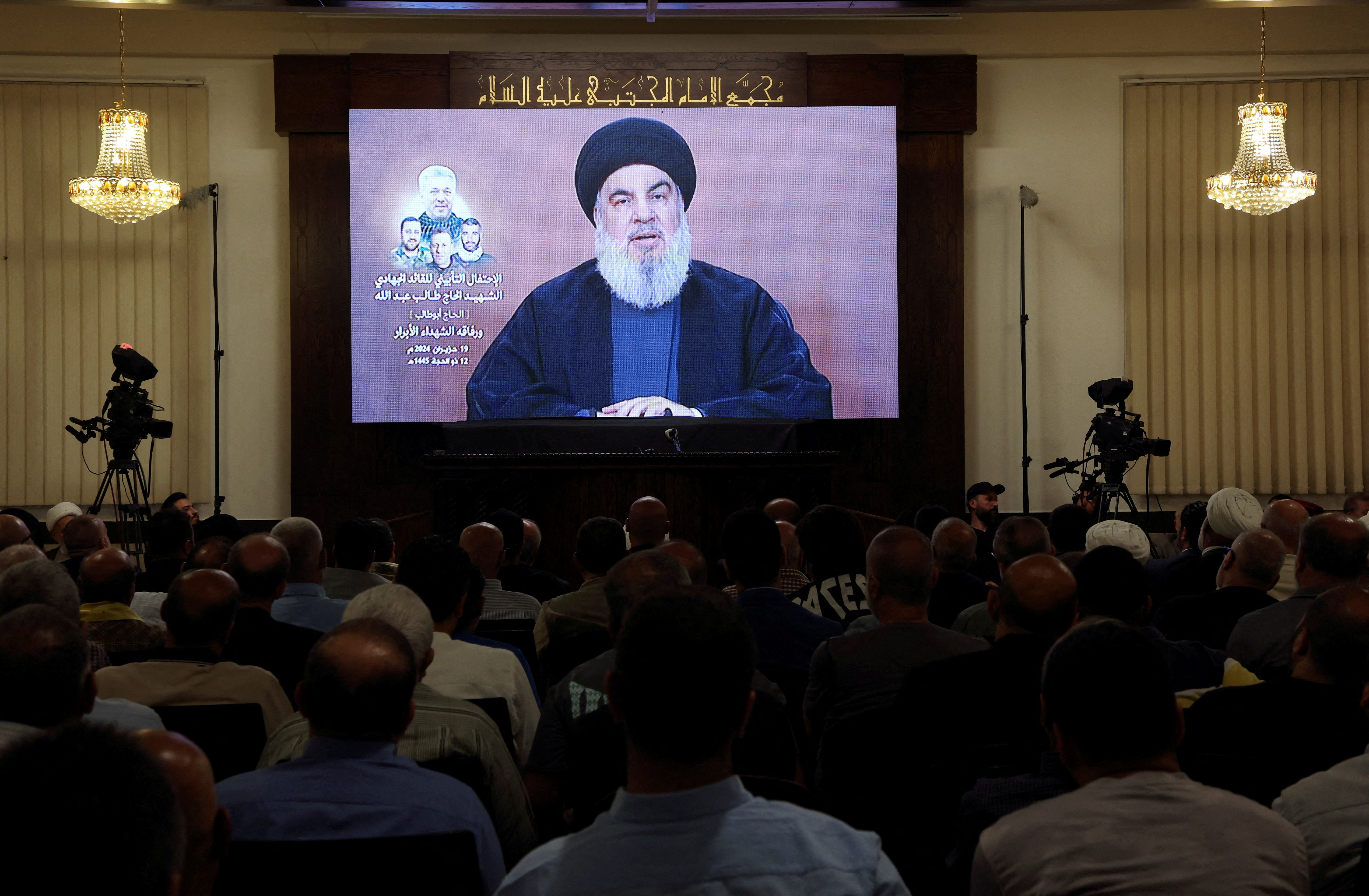The head of Lebanon’s Hezbollah Sayyed Hassan Nasrallah threatened Cyprus for the first time on Wednesday, saying Hezbollah could consider it “a part of the war” if it continued to allow Israel to use its airports and bases for military exercises.
It is widely believed that Nasrallah’s mention of Cyprus’ “airports and bases” concerned the RAF Akrotiri, a permanent military base that supports ongoing operations in the region, including Israel, as well as support for the Sovereign Base Areas (SBAs) in Cyprus.
In a televised address, Nasrallah said that his group would fight with “no rules” and “no ceilings” in case a broader war with Israel erupted, and that nowhere in Israel would be safe from Hezbollah’s attacks.
The threat included possible targets in the Mediterranean Sea, including Cyprus.
“Opening Cypriot airports and bases to the Israeli enemy to target Lebanon would mean that the Cypriot government is part of the war, and the resistance will deal with it as part of the war,” he said.
“The enemy wants to intimidate us, but they are the ones who should be afraid,” he warned.
“We will continue to support Gaza and we are ready for anything. We are not afraid. Our demand is clear: a complete and permanent ceasefire in Gaza.”
Later in the evening, President Nikos Christodoulides responded to Nasrallah’s threats, saying “Cyprus remains uninvolved in any military conflicts and positions itself as part of the solution rather than the problem.”
Speaking to reporters at the graduation ceremony of the University of Cyprus, Christodoulides stressed Cyprus’ role as a humanitarian facilitator, “which is recognised globally and particularly in the Arab world.”
“Our humanitarian corridor is a testament to our commitment to peace and stability,” he said. “Cyprus is not part of the problem, it is part of the solution.”
Regarding potential communication channels with Hezbollah or the Lebanese government, Christodoulides confirmed that Cyprus is open diplomatic channels with both the government of Lebanon and the government of Iran.
He acknowledged that Nasrallah’s remarks were troubling but refuted any claims suggesting Cyprus’ involvement in military operations.
“Such statements are not pleasant, but they do not reflect reality. Cyprus is not participating in any military engagements,” he reiterated.
In response to queries about consulting with foreign leaders on this issue, Christodoulides assured that the government will address the issue through diplomatic channels.
“Cyprus’ actions are transparent and demonstrate our commitment to being part of the solution,” he concluded.
This is not the first time Nasrallah mentions Cyprus in his speeches. Last month, Nasrallah called on Lebanon to “open the sea” so that Syrian migrants could make their way to Cyprus.
“A national decision should be made to open the sea to anyone who wants to leave for Europe, for Cyprus, the European Union country closest to the Middle East,” he said.
Last month’s threat prompted the government to contact the Lebanese authorities, with government spokesperson Konstantinos Letymbiotis saying that Nasrallah’s statement that Cyprus is the closest EU state was simply a reality.
Diplomatic sources told the Cyprus Mail that Nasrallah’s remarks were be read in the context of “internal power games” in Lebanon.
“It’s probably about who controls what areas in Lebanon,” said the sources.






Click here to change your cookie preferences